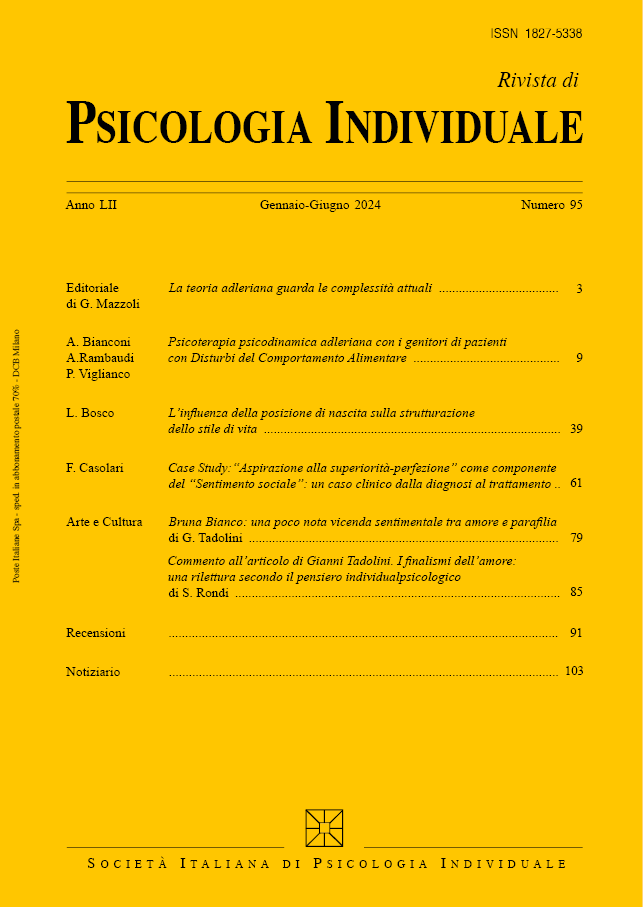FOR A DEVELOPMENT OF THE PSYCHOPATHOLOGICAL-CULTURAL COMPREHENSION OF ADDICTION (DEPENDENCE) AND FOR A BASIS OF THE PSYCHOTERPEUTIC INTERVENTION
Keywords:
addiction, complexity, psychoterapy, dipendenza, dipendenze, complessità, psicoterapia adlerianaAbstract
Addiction (for convenience we will also use the word “dependence” as a synonymous of addiction) is a pathological condition stemming from the interaction of different elements that constitute a complexe system: any monocular or simplified vision is radically kept in check by the phenomenological and clinical reality. Moreover, the border between pathology and non-pathology in the dependences, is nuanced and floating and is effected by the changes of one of the most crucial and powerful vectors: the environment. The type of substances, their symbolization, the representation of the problem as well as the management of their psychophysical effects, the research of well-being, are strongly influenced by social recognition and by myths and collective fictions. The culture of limit denial and the technological increase in daily life, both incurred by financial purposes and both reinforcing collective great mania, make difficult the recognition and the definition of the clinical problem. The therapist, in particular the psychotherapist, can find him/herself in the condition of swinging between the loss of role and power and the drift to assume a role of fictional superiority: on one hand having to recognize him/herself outdated, on the other hand not being able to recognize the “prophetic” meaning of drug-addictive experiences. The therapy of dependence must be refunded in order to give it a meaning that can move among complication, complexity, in an open multidisciplinary system, in a relational and functional network, able to create changes in the meaningful references of the patient






